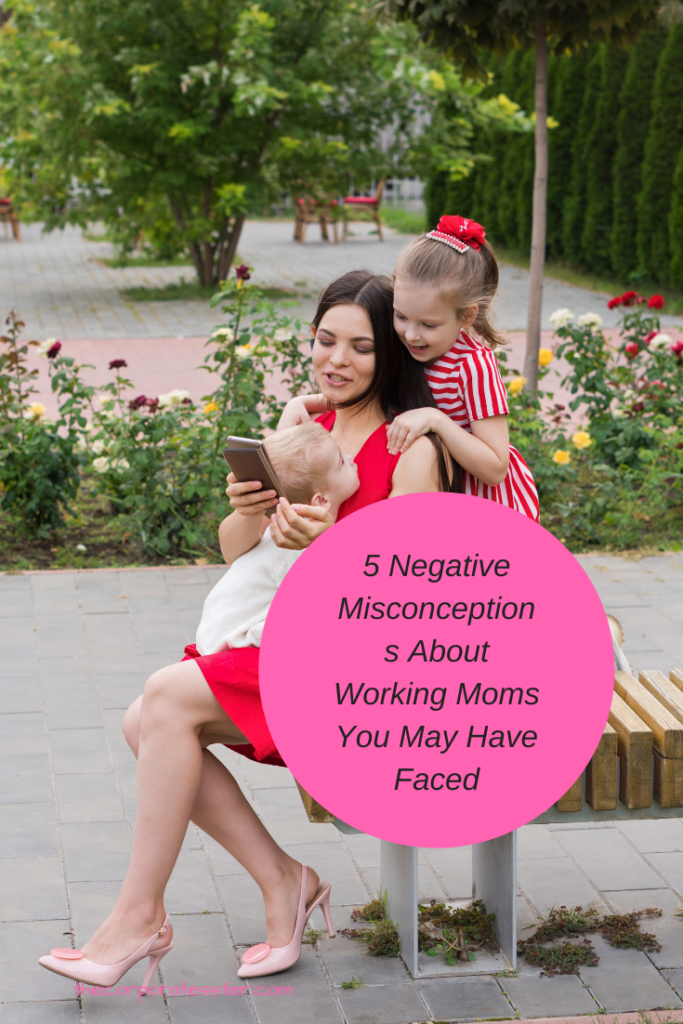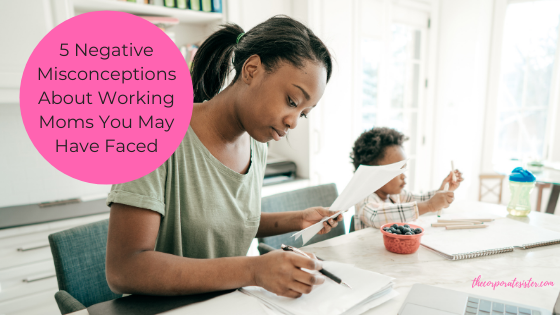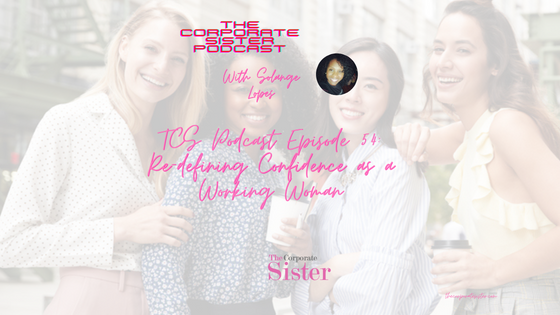There are many false myths surrounding working mothers, most of which carry their fair share of negativity and judgment. These are oftentimes erroneous ideas about what it means to be a striving, growing and thriving working mom. Unfortunately, these are also ideas that pervade our society, workplaces and social environments, and work against positively understanding and supporting working mothers in and outside of the workplace.

These misconceptions are at the root of most of the systemic inequities in pay, benefits and perceived ability and competence, encountered by mothers in the workplace. As a matter of fact, research by the National Women’s Law Center’s shows U.S. mothers working full-time being paid on average $18,000 less per year than fathers. This loss in earnings is compounded for mothers of color and in some states. This financial loss, also coined as the “motherhood penalty”, further affects working moms’ ability to be hired, promoted, and generally recognized and rewarded in their careers. The COVID-19 pandemic, with the combined impact of remote work and amplified childcare demands, has managed to amplify these biases against working moms. As a result, one in four women is considering a career downshift or exit post-pandemic, according to the 2020 McKinsey & Company’s Women in the Workplace report.

Outside of the workplace, these false myths contribute to the existing and growing “backlash effect” against professionally thriving working women and moms alike. These are the negative social and economic effects women and moms experience for behaving counter-stereotypically by engaging in self-promotion, or showing themselves to be competent and ambitious.
As a working mom, you may have experienced the impact of these misconceptions in and outside of work. You may as a result have had to deal with being perceived in a negative way, and maybe feeling guilt as a result of it, or having to defend your personal and professional choices at your own expense.
Here are some of these false myths and misconceptions you may recognize:
- She must not have enough time to dedicate to her career and her family
Working moms have notoriously been penalized for, well…being working moms. One of the wide-ranging assumptions made about them is that once they have children, they are now limited in their careers. It’s widely assumed that working mothers do not have the necessary time and dedication to grow and advance in their careers, and as a result, are kept out of advancement and growth opportunities at work.
- She must be less competent because she has kids
Another false assumption surrounding working mothers, is that they tend to be less competent. It is as if having children somehow lessens one’s intelligence and ability to function in the workplace. The reality is much different however. Mothers bring an unprecedented and unique set of skills at all levels of organizations, from the administrative desk to the boardroom. Yet, as revealed by the Modern Family Index, 60% of working Americans admit to career opportunities being afforded to less qualified employees rather than more competent working moms.
- She must not work as hard as her peers
Along with not being able to handle personal and professional responsibilities, it’s also assumed that working mothers are not putting in as much effort as their peers. This restrictive view of working moms has contributed to holding them back in the workplace, with fewer than two in five mothers feeling they are afforded as many professional opportunities as their colleagues.
- If she spends time at work, she must not be spending time with her children
While many of the misconceptions around working mothers are centered on their imagined professional deficiencies, many are direct attacks at their very ability to mother. Many a working mom has had to deal with the muted, or not-so-muted reproaches as to their career and schedule choices. Somehow, the antiquated notion that women cannot combine work and family casts a shadow of doubt on working mothers, relegating them to the ranks of lesser mothers by virtue of the time they spend at work or at home.
Yet, research shows that having a working mom benefits kids later in life. Generally speaking, it’s the quality, not the quantity of time spent with children, that really impacts them in the long run.
- If she spends a lot of time at work, she must not have a good marriage
The same assumption as the one pervading working moms’ relationships with their children, also surrounds their marriages relationship with their significant others. False ideas about working mothers may have us believe they make poor partners or wives, and may not be dedicated enough to their relationships. Yet, a 2011 study in the Journal of Psychologyreveals higher marital satisfaction in couples where the wife continued working after kids. As women work more outside of the home, their partners may be more inclined to step up more at home and with the kids. On the other hand, there may be more of a perception that women working from home, or stay-at-home moms, may be available to handle all of the household duties.
If you’re been reading and nodding your head along, you may very well have experienced one, or many, if not all of these false myths about being a working mom. Beyond being just grossly inaccurate and borderline insulting, these are also misconceptions that carry too heavy a weight for mothers. It is up to each and every one of us to not only acknowledge these, but also to stop feeding, even if unconsciously, these false ideas. Instead, in each and every one of our capacities as women and men, it is our responsibility to change the narrative around what it truly means to be a working mother, and prompt our organizations, structures and society, to r-create a more accurate and better suited story around working moms.
The Corporate Sis.







